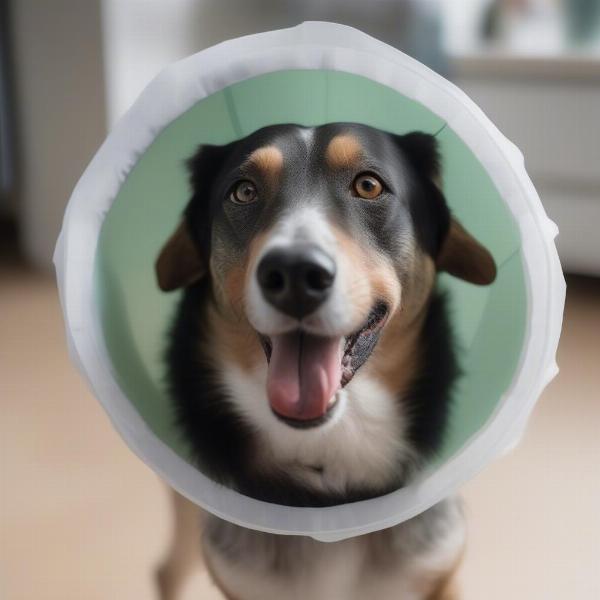Germolene is a common household antiseptic ointment used for minor cuts and scrapes. But is Germolene safe for dogs? The short answer is no. While Germolene might seem like a convenient solution for your dog’s minor wounds, it’s crucial to understand that it’s not formulated for canine use and can pose potential health risks. This article will explore why you should avoid using Germolene on your dog and offer safe alternatives for treating minor injuries.
While Germolene contains ingredients that can be toxic to dogs if ingested, the primary concern lies with its formulation. Dogs tend to lick their wounds, and if Germolene is applied, they are likely to ingest it. This can lead to gastrointestinal upset, including vomiting and diarrhea. Additionally, some ingredients in Germolene can cause skin irritation in sensitive dogs. It’s always best to consult a veterinarian before applying any human medication to your dog, even for seemingly minor injuries.
Why Germolene Isn’t Suitable for Dogs
One of the main ingredients in Germolene is zinc oxide. While generally safe for humans, zinc can be toxic to dogs if ingested in large quantities. Symptoms of zinc poisoning include vomiting, lethargy, loss of appetite, and even anemia. Since dogs instinctively lick their wounds, applying Germolene puts them at risk of ingesting harmful levels of zinc.
Another ingredient found in some Germolene formulations is phenol. This antiseptic can be irritating to a dog’s skin and can cause further complications if ingested. Even small amounts of phenol can be harmful to dogs, leading to potential liver damage.
Safe Alternatives for Treating Minor Wounds in Dogs
Fortunately, there are several safe and effective alternatives to Germolene for treating your dog’s minor cuts, scrapes, and abrasions.
- Veterinary-approved antiseptic wipes or sprays: These products are specifically formulated for use on dogs and are readily available at most pet stores. chlorhexidine wipes for dogs are a good option, offering effective antiseptic properties without the harmful ingredients found in Germolene.
- Saline solution: A simple saline solution can be used to clean minor wounds and keep them free of debris. You can purchase sterile saline solution at any pharmacy.
- Antibacterial ointments designed for pets: Your veterinarian can recommend specific antibacterial ointments that are safe for dogs and effective in promoting healing. germolene dogs discusses this in more detail.
When to Consult a Veterinarian
While minor scrapes can often be managed at home, it’s essential to seek veterinary care for deeper wounds, punctures, or injuries that show signs of infection. Signs of infection include redness, swelling, pus, and increased pain. If you’re unsure about the severity of your dog’s injury, it’s always best to err on the side of caution and consult your veterinarian. They can provide appropriate treatment and advise on the best course of action for a speedy recovery. can you put germolene on dogs offers further information.
 Dog wearing a protective cone
Dog wearing a protective cone
Can I use Germolene on my dog’s paws?
No, you should not use Germolene on your dog’s paws. They are especially prone to licking, increasing the risk of ingestion and potential toxicity. anti lick dog spray can be a helpful tool in these situations.
Conclusion
In conclusion, Germolene is not safe for dogs. While it might be tempting to reach for a familiar antiseptic, it’s crucial to prioritize your dog’s safety by using products specifically formulated for canine use. Consult your veterinarian for advice on the best way to treat your dog’s injuries and maintain their overall health. dental cleanse for dogs is another important aspect of dog care.
FAQ
- What should I do if my dog licks Germolene? Contact your veterinarian immediately.
- Are there any human antiseptic creams safe for dogs? No, it’s always best to use products specifically designed for animals.
- How can I prevent my dog from licking a wound? Use an Elizabethan collar (cone).
- What are the signs of an infected wound in a dog? Redness, swelling, pus, and increased pain.
- Can I use Neosporin on my dog? Only certain formulations, consult your veterinarian.
- What is the best way to clean a minor wound on my dog? Saline solution or veterinary-approved antiseptic wipes.
- When should I take my dog to the vet for a wound? For deep wounds, punctures, or signs of infection.
ILM Dog is your trusted global resource for expert advice on dog care and wellbeing. We offer a wide range of information, from breed selection and healthcare to training, nutrition, grooming, and product recommendations. Whether you’re a new dog owner or a seasoned expert, ILM Dog provides valuable insights to help you nurture a happy and healthy canine companion. Contact us at [email protected] or +44 20-3965-8624 for more personalized advice and support.